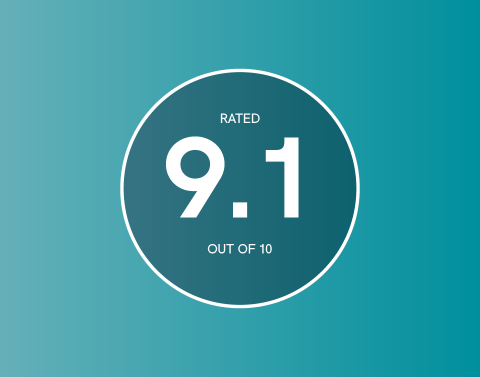Did you know just 17% of tech workers in the UK are female? (Source: Tech Talent Charter) Amidst an ever-growing digital skills gap, only one in 10 women are currently taking A-Level Computer Studies, and the future of the market remains uncertain as demand for talent outstrips supply. Why the female professional community is so averse to this sector is an issue not easily explained, and it’s been disrupting the sector continually as businesses race to level the playing field…
A time for change
It’s a question posited by many at the Tech Talent Charter (TTC), a nationwide initiative set out to steer meaningful change in the imbalance of diversity in the tech industry. As supported in March 2017’s government policy paper on UK Digital Strategy, TTC represents a collective voice of recruiters, tech companies and social enterprises that have joined forces to promote change across the sector. And Oliver James is proud to call itself part of the movement.
Nick Godson, who acted as senior signatory in our association, commented “The need for tech-savvy talent is growing consistently across all industries, with a large divide between supply and demand in this market. It’s something we look forward to tackling among others in the TTC, both as an employer and D&I-conscious recruiter. Together, we’ll work to aid the attraction and development of diverse talent within the tech space, arguably one of the most challenged in this area.”
The candidate’s market
Diminished diversity is problematic for what is otherwise a progressive sector, especially as companies look to bring their D&I policies into the 21st century. Equally, skills gaps are evident almost everywhere in the profession. "Demand for top talent is at an all-time high and tech unemployment is at an all-time low – and unless significant change occurs at a strategic level, we expect this to be an ongoing theme within the sector, " comments Iola Owen, Client Relations Associate Director. Indeed, McKinsey reports that the demand for agile skills could be four times supply, where big data talent requirements could be as much as 50% to 60% greater than projected supply.
It’s bad news for businesses, signifying an increasingly competitive market where the candidate holds the power. This is a challenge not only for companies that have open tech positions, but also those with tech professionals that may be tempted by lucrative external opportunities.
Companies that understand their talent’s needs – and know how to meet them – will be the ones that retain the edge.
As pointed out in a Forbes piece, “the people creating this technology have the power to influence how it works, and that’s too big a responsibility for any single demographic to have full control over. A lack of diverse ideas and representation could lead to further disparities between gender, race, and class.” Forbes also reported that “95% of the current global tech workforce is white”, signalling that the issue doesn’t stop with female representation.
Playing our part
By committing to TTC, Oliver James will uphold several pledges to advocate change in the recruitment and retention of tech talent in the UK. We’ll be building upon our current initiatives to further promote the inclusion of female talent in tech shortlists, while advising on methods to drive inclusive attraction and recruitment processes.
Our first act as TTC members will be to bring these issues to light in the next instalment of our round table series. ‘Strategic Resourcing Solutions: Diversity and Inclusion’ takes place on November 14 in Manchester, and the appetite for tech talent is set to be a key focal point amongst those in attendance.
To learn more about ‘Strategic Resourcing Solutions: Diversity and Inclusion’, and discuss availability, please contact Iola Owen on +44 (0) 203 861 9182. For further information on TTC, visit techtalentcharter.co.uk.



